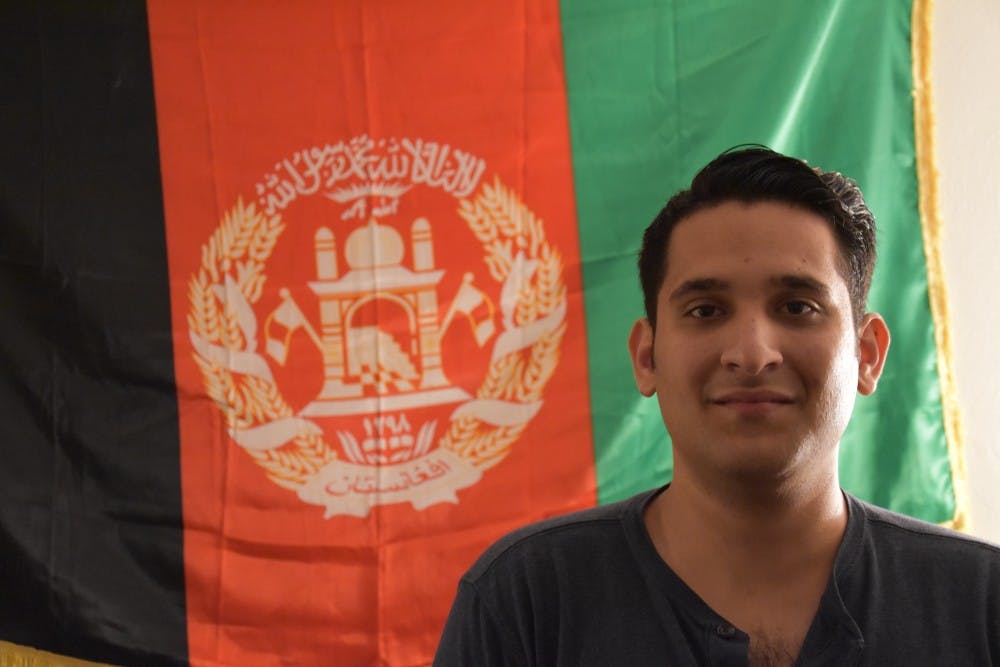The Taliban attack at the American University of Afghanistan on Aug. 22 that left 13 dead and dozens injured was felt here in Muncie by Ball State alumni.
Ball State has a past with AUAF, most recently in 2014 when Ball State contracted with the Afghanistan-based university to provide English language training for Afghan teacher trainers from the National Institute of Management and Administration.
“This was part of a project funded by the World Bank, focusing on developing skills for Afghan men and women to enter the workforce,” said Nick Sabato, the Director of Operations for the Center for International Development
Additionally, Sabato said there were not any Ball State faculty, staff or students at the university during the attack and noted that the overwhelming experience of those who traveled there has been positive.
Sajjad Bashiri, a Ball State alumnus who graduated in the summer of 2016 with a bachelor’s degree in computer science, learned about the attack when the Ball State Daily contacted him for an interview.
Immediately after learning about the attack, Bashiri called his friends and got on Facebook to see several posts from his friends who study at AUAF.
“My classmates are dead. My classmates are severely injured, as well,” said one of his friends in a post. “I don’t have any idea how I ran [that far], after hearing some [gunfire] and then a big bomb blast.”
As Bashiri searched social media for people who were affected by the attack, he found someone he knew who was killed.
“This guy is dead,” said Bashiri, as he scrolled through his Facebook feed. “He was in my high school. He went to that university.”
Another one of Bashiri’s friends broke his leg after jumping off the building during the attack.
Bashiri, an Afghanistan native, attended high school at American University of Afghanistan before coming to America to attend Ball State. Many of his friends in high school studied at AUAF.
“The crazy thing was my dad said if I couldn’t get the visa to come to Ball State, I was going to end up [studying at] that university,” Bashiri said. “I could have been in there.”
The Ball State alumnus, who lives in Muncie, said he’d like to go back and visit his country, but he's hesitant because of the danger there.
“The situation is very bad now in Afghanistan. It used to be good when I was there because there was U.S. involvement," Bashiri said.
Bashiri left Afghanistan in 2012 to study at Ball State, and he said he hates the Taliban and wants them out of his country, especially before he goes back to his home country.
“I want them f—king gone from my country ASAP," Bashiri said. “Either killed, dead, captured – I want them finished. I’m so mad at them.”
The Ball State alumnus said he also feels frustration here in America when people ask him if he is a terrorist or if he is part of ISIS or the Taliban. In the past, he remembers a woman asking him where he was from. When he answered Afghanistan, the woman asked outright if he was a terrorist.
“I hate theses people as much as [the Americans] do," Bashiri said. “I suffer more than you guys do, then I get blamed.”
Khalid Fazly, a Ball State alumnus who graduated in the spring of 2016 with a master’s degree in public administration, was a graduate assistant for Ball State’s Center for International Development and helped Ball State work with AUAF.
“I helped in curriculum development; I translated the local languages to English and gave cultural advice,” Fazly said.
When he heard about the attack on the university, he said he felt pain and thought it was tragic, but he's hopeful things will get better in his country. In the present, however, Fazly said believes there is no freedom when the Taliban rules.
“It was my beard that somebody else had to say if I should grow it or not," Fazly said. “It was my TV, but I didn’t really have the right to turn it on or have it at my house because I was afraid that someone in the Taliban would come and break into my house and destroy my TV and put me in jail.”
Fazly said he thinks things have changed for the better over the last 14 years because Afghan citizens have more freedoms, even though there are still attacks.





